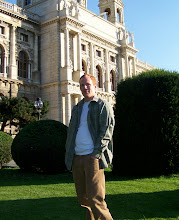Yep, you read right. I don't like parties. I don't understand why we have them. What is the purpose? Are parties really beneficial for our country?
Political parties, of course. I don't want to critique the democratic party, the republican party, independents...at least not specifically. Instead, I want to question the usefulness of the entire party system.
I have an honest question...Why are political parties useful? Theoretically, a political party creates an ideology and a set of goals. Theoretically, a candidate from a party has a very similar set of goals and a similar ideology. Of course, in practice this isn't the case - the ties can be loose at best. This is the primary benefit (for voters) that I see in the party system.
Of course, they are very useful for politicians. If you choose one of the "big two" you are able to gain access to all the resources of that party - for example, presidential campaign financing.
On the other hand, the two party system we have here in the United States has a number of problems. The two are in a constant battle to one-up the other. Elections are often less about stating an agenda for political change than they are about making sure you look better than "the other guy". You can't tell much about a politician's agenda from his party - for example, in California we have Arnold Schwartzenegger as governor, a republican who seems to have much more in common with the democratic party...part of the reason why he has been reelected in a heavily blue (democratic) state.
Maybe a reader can shed some light for me, maybe I'm missing some of the benefits to the party system. I haven't fully discussed the perceived downsides to what I'm starting to view as a defunct system (ease of corruption, partisan voting, teeter-totter election schedule, more) but I think it's possible there are things I don't understand. Lecture me :)
Thursday, December 07, 2006
Subscribe to:
Post Comments (Atom)

1 comment:
*gasp* How could you?? Political party competition created modern democracy! They exist to support the blind spot between the people and the government and even between the different branches of govt! Ahem, theoretically. =p
Ha, but seriously, they do - the Constitution doesn't say anything about how the government and the people should be mediated, so parties have historically coordinated the decision-making.
The thing is, their usefulness was more obvious at some points than at others. Quick history lesson (hey, you asked for a lecture!) - so, the party system was formed after the Civil War and it pretty much helped to mobilize American life and transform govt from the small republican mentality to the more liberal and democratic way of life we now know. How? Well, before that, people were more loyal to and identified more with their regions than to the country as a whole... Plus, this was before civil service exams and such, so it was definitely beneficial for voters, since the majority of civil service jobs and govt contracts were meted out on the basis of party affiliation... Oh, and they helped integrate the surge of immigrants to American life during the 1900s.
Hmph, it sounds so cynical for you to say that parties are only useful for the politicians - I mean, it seems like you're saying that the only goal of politicians is to get elected. But, come on, it's to represent the people's interests in govt - however obscure that might seem now. =p
Um, what else - the two party system definitely has a "number of problems," but there's some polisci "law" that says it's inevitable because multi-party systems will inevitably merge and form "umbrella parties" in order to win consistent majorities - plus, the US specifically sees the electoral system as a "winner-take-all" system.
[Oh, Wikipedia: Duverger's Law]
It's funny you mentioned Arnold because the semester after he ran for governor the first time, I took an American Government class and the professor used a slide projector to list the hundreds of people who ran for governor that year. It went on for pages - and of course, none of them were recognizable save one. The Terminator! I think he called it the "Schwarzeneggar phenomenon" - choosing candidates based on name-recognition regardless of qualifications, since it's the only way for voters to distinguish between candidates...
Well, there you go - one reason why parties are still semi useful - it's a better option than simply voting based on name-recognition. "Brand name politics."
Plus, what other options are there? More Schwarzeneggar? Or... before parties, we had elites selecting each other (ahem, all land owning, white males!! Note: Founding Fathers!) or populism (which just leads to more politicians making even more promises they can't keep...)
Moral: Parties are the best of a bunch of bad alternatives.
hehe, I hope you enjoyed my extremely random guide to party politics from having taken way too many polisci classes... bleh
Post a Comment